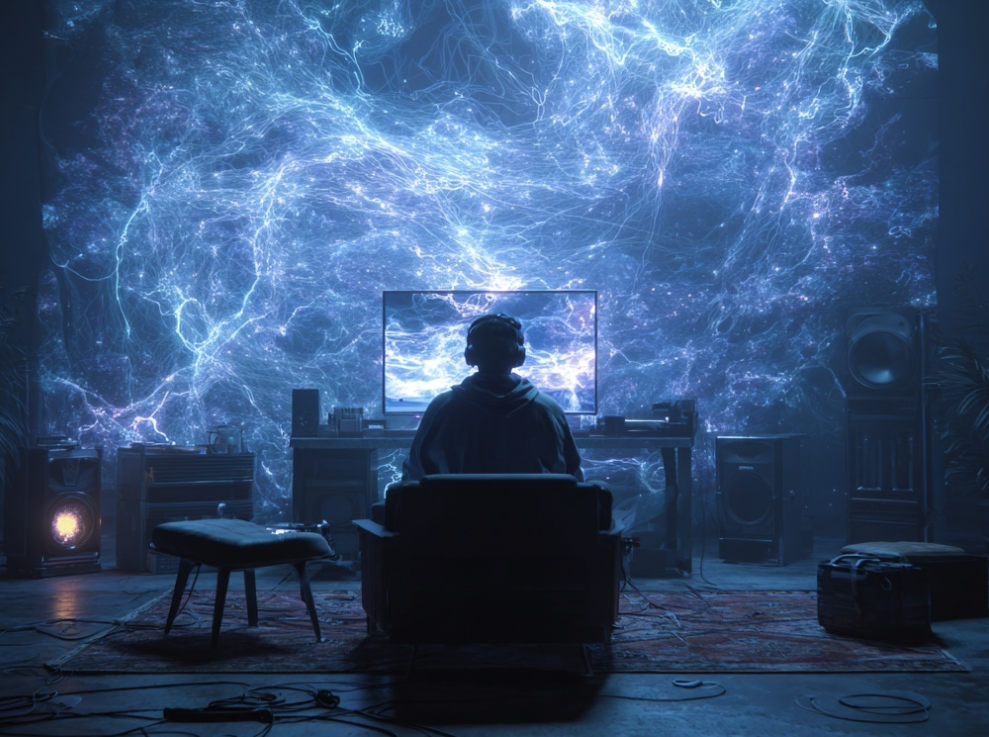Real-time World Models Gaming: The Future is Already Running
Genie 2 laid the foundation. The next generation (Genie 3?) will bring 24fps real-time generation. Odyssey streams at 40 milliseconds per frame. World Labs creates persistent 3D from single images. Real-time world generation is arriving.
What Real-time World Models Actually Mean
Traditional Game Rendering
- Load pre-built assets
- Execute pre-written physics
- Render pre-defined scenes
Real-time World Models
- Generate everything as you play
- No loading screens because nothing pre-exists
- Infinite variation because nothing is pre-defined
The shift is from playing in worlds to worlds creating themselves around you.
The Technical Achievement
What next-gen models (like an anticipated Genie 3) could deliver:
- 720p or higher at 24fps+
- Consistency for extended gameplay sessions
- Real-time response to player input
- Memory of previous frames for coherence
How It Works:
Player input → World model inference (41ms) →
Frame generation → Display →
Next input processed
At 24fps, you have 41.6 milliseconds per frame. Next-generation models will need to achieve this to be truly playable.
The Latency Challenge Solved
The breakthrough isn't just generation - it's speed:
5-10s NeRF rendering per frame 2-3s Stable Diffusion per image 40ms Genie 2 (playable) 16ms Gaussian Splatting (smooth)
// This is the target for real-time function frameTime(fps) { return 1000 / fps; // ms } frameTime(24); // 41.6ms - Cinematic frameTime(30); // 33.3ms - Console standard frameTime(60); // 16.6ms - Smooth gameplay frameTime(120); // 8.3ms - Competitive gaming
Current Implementations
Odyssey (May 2025):
- Interactive video streaming
- Users control exploration
- 40ms response time
- Runs on cloud GPUs
World Labs:
- Single image to 3D world
- Interactive and modifiable
- Physics-accurate
- Persistent across sessions
Rosebud + Veo 3:
- Video generation with game logic overlay
- Playable, not just viewable
- Browser-based deployment
The Memory Architecture
Real-time world models need memory to maintain consistency:
class WorldMemory { constructor() { this.shortTerm = []; // Last 60 frames (2 seconds) this.longTerm = {}; // Key world facts this.spatial = {}; // 3D understanding } generateNextFrame(input) { // Consider recent history const context = this.shortTerm.slice(-30); // Maintain spatial consistency const position = this.spatial.playerPosition; // Generate coherent next frame return model.generate({context, position, input}); } }
Future models like Genie 3 will need to remember visual details from extended periods - revolutionary for generated worlds. This builds upon concepts explored in our world models overview.
The Multiplayer Problem
Current limitation: World models are single-player.
Why? Each player's actions create divergent worlds:
Player A turns left → Generates left path Player B turns right → Generates different right path Worlds diverge → No shared reality
Solutions being explored:
- Authoritative world generation (one model, many viewers)
- Consensus algorithms (models vote on next frame)
- Predetermined seeds (same input = same world)
Browser-Based Advantage
When real-time world models ship to browsers:
Native Integration:
// Future browser API const worldModel = new WorldModel('genie-4'); const canvas = document.getElementById('game'); worldModel.onFrame = (frameData) => { canvas.render(frameData); }; worldModel.start({ prompt: "Cyberpunk racing game", fps: 60 });
WebGPU Acceleration:
- Direct GPU access from JavaScript
- Tensor operations at native speed
- No driver installations
- Works on all devices
The Gaming Revolution
Infinite Content: Every playthrough is unique
// Never the same game twice startGame("Fantasy RPG with dragons"); // Completely different world each time
Adaptive Difficulty: Worlds reshape based on player skill
if (player.struggling) { world.adjust("make slightly easier"); }
Emergent Narratives: Stories that write themselves
world.addContext("Player chose peaceful path"); // World generates accordingly
Performance Optimizations
Making world models game-ready:
Frame Interpolation:
// Generate at 12fps, interpolate to 60fps const keyframe1 = await model.generate(); const keyframe2 = await model.generate(); const interpolated = interpolate(keyframe1, keyframe2, 5); // 2 model calls = 10 display frames
Predictive Generation:
// Generate probable futures in parallel const futures = await Promise.all([ model.predict({action: 'moveLeft'}), model.predict({action: 'moveRight'}), model.predict({action: 'jump'}) ]); // Instant response when player acts
Level-of-Detail:
// Generate detail where player looks const highDetail = model.generate({ area: player.viewFrustum, quality: 'high' }); const lowDetail = model.generate({ area: 'peripheral', quality: 'fast' });
The Rosebud Integration
We're building the platform for when these models are publicly available:
Today: Composite approach
- Veo 3 for cinematics
- Procedural generation for gameplay
- AI for game logic
Tomorrow: Full world model integration
- Genie-style world generation
- Real-time at 60fps
- Multiplayer support
- Browser-native
The Architecture:
class RosebudWorld { constructor() { this.renderer = new THREE.WebGLRenderer(); this.worldModel = null; // Ready for future models } async loadWorldModel(modelName) { this.worldModel = await import(`@models/${modelName}`); this.worldModel.onFrame = (data) => { this.renderer.render(data); }; } start(prompt) { if (this.worldModel) { // Use world model when available this.worldModel.generate(prompt); } else { // Fall back to current generation this.generateTraditional(prompt); } } }
What You Can Build
Today with current tech:
- Infinite runners with generated levels
- RPGs with AI-driven narratives
- Puzzle games with unique solutions
- Social spaces that evolve
Tomorrow with full world models:
- Open worlds that generate as you explore
- Stories that adapt to every choice
- Multiplayer worlds that surprise everyone
- Games that dream themselves into existence
Projected Development Path
Current: Limited preview, research access
Near term: Potential API access expansion
Future potential: Consumer hardware may run local models
Long term vision: Real-time world models could become standard in browsers
Each step makes creation more accessible.
Start Building
The infrastructure is ready. The models are improving daily. The future of gaming is real-time generation.
Don't wait for tomorrow's models. Build with today's tools, ready for tomorrow's capabilities.
Join the Revolution
Join the real-time world model revolution at rosebud.ai









